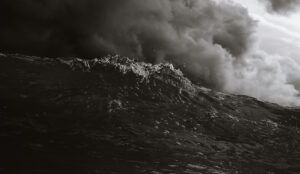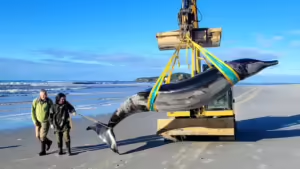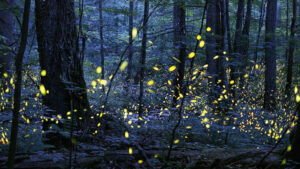A passion for the natural world drives many of our adventures. And when we’re not outside, we love delving into discoveries about the places we live and travel. Here are some of the best natural history links we’ve found this week.
Hope for Galapagos penguins: Over a decade ago, biologist P. Dee Boersma chiseled out holes in the lava on the Galapagos Islands. Boersma was trying to encourage Galapagos penguins to use the little depressions as nests.
Gradually, more and more of the endangered penguins have used the hollowed lava to breed and raise young. Now, conservationists estimate that a quarter of the endangered animals are juveniles. The nests and plentiful fish have allowed the species to flourish.
“I was just so pleasantly surprised because it’s the best breeding we’ve seen over the last 12 years,” Boersma said.
Arctic evolution
Learning about the first animals on Earth: Fossil records suggest that the earliest animal life occurred 602 million years ago. Molecular studies peg the date as even earlier, 850 million years ago. This discrepancy creates huge uncertainties about how and where animals first evolved.
But regardless of the time, is it clear that animals have survived multiple global ice ages. Conditions would have been similar to marine habitats in Antarctica and the Arctic today. Researchers are studying these habitats to better understand how life could have evolved in these conditions.
“This work highlights how some animals in the polar regions are incredibly adapted to life in and around the ice and how much they can teach us about the evolution and survival of life in the past, or even on other planets,” Huw Griffiths of the British Antarctic Survey explained.

A mass stranding of pilot whales on Chatham Island. Photo: Tamzin Henderson/Washington Post
Hundreds of whales wash up on New Zealand’s shores: New Zealand has seen two mass stranding events within a few days.
On October 7, 230 pilot whales stranded themselves on Chatham Island. Just four days later, 245 more washed up on Pitt Island. A large number were already dead, but authorities had to euthanize others when they could not return them to the ocean.
Sadly, this was not an isolated incident. Two weeks ago, 200 whales beached themselves on the Australian island of Tasmania. No one knows why such events happen. However, pilot whales are incredibly social and their instincts drive them to stay with their pod. They have been known to follow distress calls of stranded whales and in turn, strand themselves.
Disappearing eels
Eel migration mystery unraveled: Every year, eels make a mass migration from European rivers to the North Atlantic. They breed once, then die. Scientists have long suspected they travel to the Sargasso Sea but have never been able to find conclusive evidence.
Now, scientists have confirmed this is the endpoint of the migration. They fitted several eels with satellite tags and tracked the last stages of their journey.
Researchers hope this information will help conservation efforts of these critically endangered eels. Previously, they had tracked eels to the Azores but then they seemed to disappear. This time, the scientists tagged eels in the Azores so that they could fill in the last section of the migration.
Goldfish have good memories: Having the memory of a goldfish might not be so bad, after all. New research disproves the long-held belief that goldfish have short memories.
A team of scientists trained goldfish to travel 70cm and back to receive food. After traveling a set distance, the researchers gave the fish an external cue, signaling they should turn and swim back to the start. Eight of the fish accurately remembered where they needed to turn without using a cue. The fish appear to use the number of contrast changes they experience to successfully estimate distances.

That seven-second memory? It appears to be a myth. Photo: Shutterstock
More bad climate news
Thawing chemicals could cause pollution: In the U.S., leftover agricultural chemicals usually freeze over winter. Locked in snow and ice, they eventually thaw in spring. At this point, plants can soak up the nutrients and stop them from running into waterways.
However, as the climate warms, the chemicals will thaw before plants can soak them up. In this scenario, they will flow into nearby rivers, streams, and lakes. Researchers believe that this could happen across 40 states. If so, it could lead to large algae blooms and mass fish die-offs across the country.






